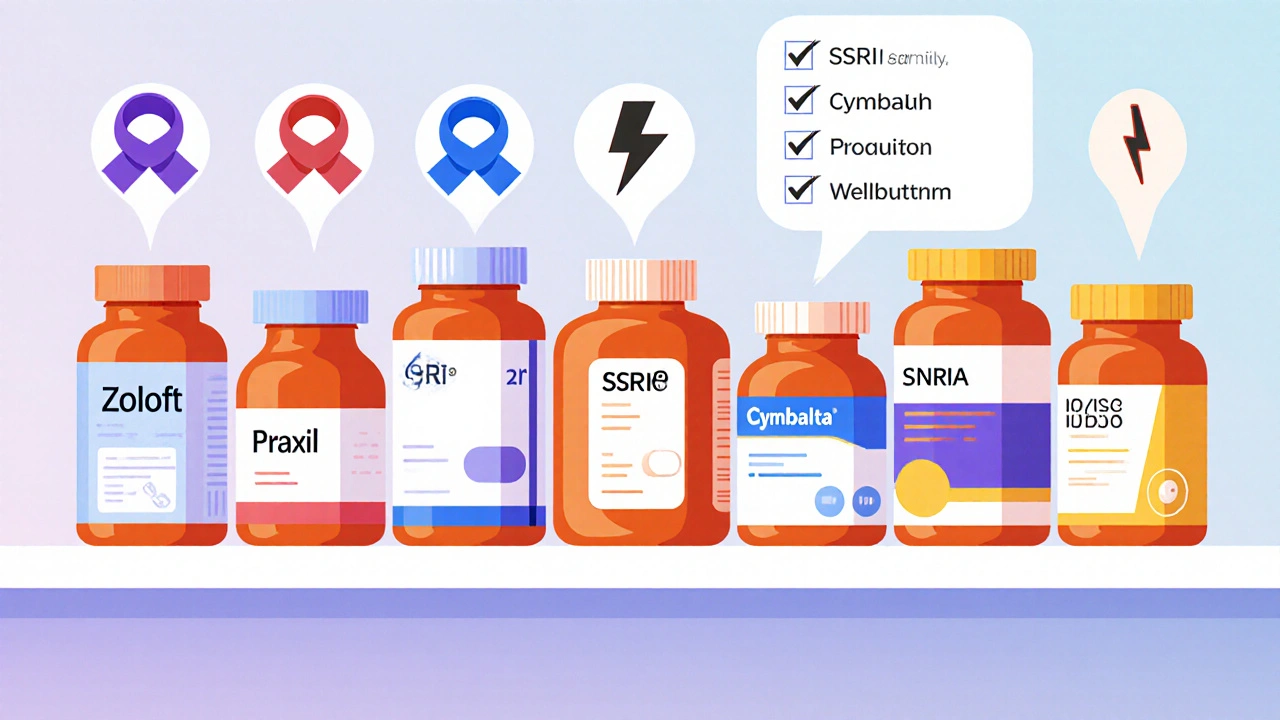Sertraline: What It Is, How It Works, and What You Need to Know
When you hear Sertraline, a selective serotonin reuptake inhibitor (SSRI) used to treat depression, anxiety, and obsessive-compulsive disorder. Also known as Zoloft, it's one of the most commonly prescribed antidepressants in the U.S. and Europe. Unlike older antidepressants, Sertraline doesn’t cause heavy sedation or drastic weight changes for most people, which is why doctors often start with it. It works by increasing serotonin levels in the brain—this isn’t magic, it’s chemistry. Serotonin helps regulate mood, sleep, and even how you respond to stress. When levels drop, you might feel down, anxious, or stuck. Sertraline helps your brain hold onto more of what it already has.
People take Sertraline for more than just sadness. It’s used for panic disorder, social anxiety, PTSD, and even premenstrual dysphoric disorder. Many of the posts here connect Sertraline to other treatments—like how it interacts with alcohol, herbal supplements, or other meds. For example, mixing Sertraline with St. John’s Wort can raise your risk of serotonin syndrome, a rare but serious condition. It also doesn’t play well with blood thinners or certain migraine meds. If you’re on other prescriptions, check with your pharmacist before adding anything new.
It’s not a quick fix. Most people start feeling better after 4 to 6 weeks, not days. Side effects like nausea, dry mouth, or trouble sleeping usually fade after the first couple of weeks. Some people feel jittery at first—that’s normal. What’s not normal is sudden mood swings, suicidal thoughts, or severe agitation. If those happen, call your doctor right away. And never stop Sertraline cold turkey. Tapering off slowly prevents dizziness, brain zaps, or rebound anxiety.
There’s a reason so many posts on this site mention Sertraline alongside other meds like Effexor, Cymbalta, or Zoloft (its brand name). People compare them because they’re all used for similar conditions but work differently. Some respond better to Sertraline than to other SSRIs. Others need a different class of drug entirely. Your body, your history, your lifestyle—all of it matters. That’s why one person’s perfect fit isn’t another’s.
What you’ll find below are real, practical comparisons and warnings from people who’ve been there. Whether you’re wondering how Sertraline affects sleep, whether it’s safe with thyroid meds, or how it stacks up against natural remedies for anxiety, the answers are here. No fluff. No hype. Just clear info to help you make smarter choices about your mental health.
A 2025 guide comparing Zoloft (Sertraline) with leading antidepressant alternatives, covering mechanisms, side effects, dosing, and how to choose the right option.
Oct, 21 2025

